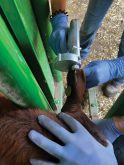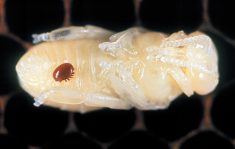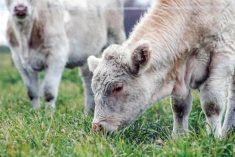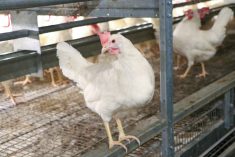Scientists at the
University of Calgary say they may have found a common DNA denominator in animals with BSE or related diseases.
That, in turn, may mean BSE could eventually be confirmed simply and cheaply by a live blood test.
Such a testing method would likely be the grail of BSE research. Confirming BSE currently means examining chunks of a dead animal’s brain tissues.
“There is currently no reliable way to tell if an animal may have a prion infection before it becomes obviously sick,” said Kevin Keough of the Alberta Prion Research Institute in a release Jan. 29. “If there were a reliable way to know, it would be of great benefit to producers, processors and wildlife managers.”
Read Also

Pig transport stress costs pork sector
Popular livestock trailer designs also increase pig stress during transportation, hitting at meat quality, animal welfare and farm profit, Agriculture and Agri-Food Canada researcher says
Researchers at Calgary and in Germany studied 19 elk, including a healthy group and a group infected with chronic wasting disease, as well as 16 BSE-infected and non-infected cattle. They were able to find specific DNA sequences in blood samples of live animals infected with BSE or CWD.
Researchers will now screen different cattle breeds for variations in the DNA sequences, and will also look at cattle with brain tumours or injuries to make sure they’re really detecting BSE.
Another group on the Prairies, including researchers at the University of Manitoba, is working on a parallel path, after having found levels of a telltale protein in cattle urine indicated the presence of BSE with “100 per cent accuracy,” but in a small sample set.


















